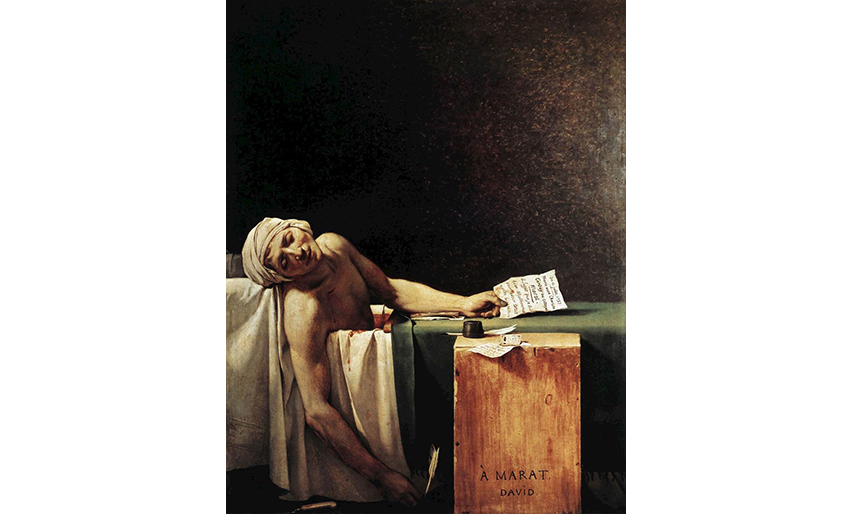


The Death of Marat, Jacques-Louis David, 1793)
Dr Scott Kirkland (Thursday 2 July)
History and repetition go together, or so we are told. Those who don’t learn are doomed to repeat, apparently. After the failure of the French Revolution and the resurrection of empire, Karl Marx wrote, 'Hegel says somewhere that all great world-historical facts and personages appear, so to speak, twice. He forgot to add: 'the first time as tragedy, the second time as farce.'' Marx was referencing the nephew of Napoleon, Napoleon III, who had like his uncle established a dictatorship just a few years after the revolution of 1848.
There is of course another story like this, or, rather, a story of which this is a repetition. Soon after Julius Caesar was assassinated for endangering the republic by establishing himself as dictator, his nephew, Octavius, established himself as emperor. The name associated with the concrete historical person, Julius Caesar, eventually became a title, Caesar. This title would be handed on, so that history could continue. As long as there was a Caesar, the end had not arrived.
When we talk about repetition here, we’re not talking about the same events recurring again and again, but rather the structure of events. This kind of repetition, however, is predicated upon failure. The failure of Julius Caesar is the catalyst for Octavius to become Augustus Caesar. The failure of Napoleon Bonaparte is the catalyst for Napoleon III. These repetitions are doomed before they begin. But, they also begin precisely because they are doomed. The king is dead, long live the King.
We find ourselves undertaking similar kinds of performative failures in our own lives all the time. When I buy that new book, I know it’s not really going to satisfy me. If it satisfied me, then I wouldn’t have the pleasure of buying another book. I need the book to fail me, because what I really want is the idea of the book that would provide ultimate satisfaction. This keeps my history in its repetitive “forward” motion.
Empires do something very similar. They need to keep the idea of the empire alive in spite of their failure in the present. The idea (office) of the presidency persists in the wake of the manifest shortcomings of Donald Trump. The idea of Caesar remains eternal even in spite of the failures of particular emperors. In fact, the failings are required in order to highlight the idea. The idea might be located in the past, but is projected into the future as something to be performed. The golden age of the American Dream (simultaneously the age of segregation), is the lost past projected into the future. Failure in the present keeps the future open, but at the cost of irretrievable loss.
I’m going to repeat something I said a few weeks back, differently. Love arrives, it takes place in the middle of things, unexpectedly. It overtakes us from without, we don’t have the power to conjure it or repeat it. Yet, when it happens you’re never the same again. Love might even interrupt repetition, it might be the end of history.
Trinity College is a college of the University of Divinity.
University of Divinity CRICOS Code: 01037A
University of Divinity TEQSA Provider ID: PRV12135
